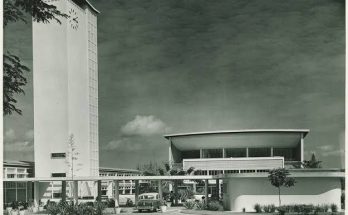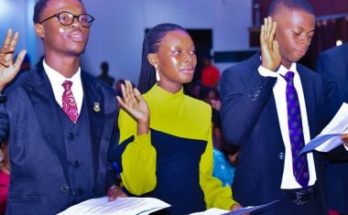
“For progress and democracy to be institutionalized, unworkable structures must be broken down.”
Much has always been said about the golden age of the University of Ibadan Students’ Union, the days when the affairs of the Union were strictly decided based on the general consensus of the students, the days when democracy was being practiced in the affairs of the Union as expected in any intellectual environment, especially in a citadel of knowledge like ours. However, over the years, things have changed drastically—and in a declining manner. The democratic values that birthed the University of Ibadan Students’ Union and indeed the University of Ibadan itself have become eroded, and the consequences are palpable.
Students’ unionism as an idea is hinged on the sacrosanct fundamentals of the freedom of students to organize and come together under an umbrella to decide on issues of interest to them, be it at the university, national, or international levels. It emphasizes the freedom of association enshrined in the Nigerian Constitution and several other charters on the rights of unions to organize their affairs. In the University of Ibadan, while the staff unions are exempted from undue interference by the management, the fate of the UISU is different. In other institutions, management interference in student union activities has been subtle, but in the University of Ibadan, such interference is so brazen and overt that the Students’ Union constitution is fashioned not to serve the interest of the students.
A critical examination of the UISU electoral process exposes a myriad of flaws that must be addressed for democracy to thrive within the Union. The first issue is the headship of the Students’ Union electoral committee. According to the constitution, the committee is to be made up of “one student representative from each faculty and hall of residence.” This seems reasonable on the surface until the next article in the constitution renders the committee a mere charade. Article 4 under Section 27 of the Students’ Union constitution mandates that “the Chairman shall be the Deputy Registrar (Students) and shall be the Overseer and Returning Officer for the elections.” This is the height of interference in the Students’ Union election. This is an affront to the democratic values we claim to uphold as an intellectual institution. The Students’ Union in the University of Ibadan has strictly been the affair of students, and nothing should justify a non-student chairing it. UI students are intellectually capable of running their affairs, as exemplified by their remarkable achievements across different fields.
Another troubling feature of the UISU electoral process is the reduction of the Union’s legislative arm, the Students’ Representative Council (SRC), to a toothless bulldog. The SRC, constitutionally recognized as the “policy-making body of the Union,” is tasked with screening and approving all members of the electoral committee, as stipulated in Section 27, Item 6 of the constitution. However, in practice, the SRC has been relegated to a mere rubber-stamp body, failing to exert its authority over electoral processes. The resultant effect is that individuals of questionable character populate the electoral committee simply because they escape the scrutiny of the SRC. Over the years, the Press, as an active observer of SRC sittings, has recorded that at no point did the Council hold a screening for electoral committee members. The outcome of this laxity is that politically exposed persons dominate the electoral committee. Former executive position holders within the Union have found their way into the commission, with examples such as Arinola David “Addo,” a former Assistant General Secretary of the Union, who chaired the logistics committee of the last election. Similarly, the current election logistics committee is headed by Olaniyi Sodeeq Dolapo, the Union’s immediate past General Secretary. This glaring conflict of interest is further exacerbated by the fact that several SRC members resign their positions to join the electoral committee, and in some cases, aspirants for various positions at the departmental, faculty, or hall levels also serve on the electoral committee. A recent example is the Faculty of Arts representative in the current electoral committee, who is also an aspirant for the position of Vice President in her department. These instances grossly violate the principle of neutrality, a key feature of any credible electoral process.
Beyond these administrative flaws, another disturbing factor is the influence exerted by the university management on student electoral activities. Electioneering periods should be characterized by debates, policy discussions, and town-hall-style engagements where aspirants are thoroughly grilled on their ideas and vision for the Union. However, beyond the press night—where candidates engage with the press under tight time constraints—and the manifesto night, which has been reduced to a platform for empty rhetoric and political chants, there are no structured engagements between candidates and students. A recent attempt to organize a public engagement with candidates, initiated by concerned students, was swiftly shut down surprisingly. This suppression of political discourse is antithetical to the ideals upon which the University of Ibadan Students’ Union was founded.
The consequences of this compromised electoral system are evident in the quality of leadership that emerges from it. The UISU elections have consistently produced leaders who rarely serve the interests of the students. These leaders have failed to provide the vibrant and efficient representation that UI students desperately need. Despite the persistent issues of astronomical tuition fee hikes, erratic electricity supply (with some parts of the campus experiencing over 100 days without power despite increased fees), and student being squeezed for expressing dissenting opinions, candidates running for Union positions have failed to address these pressing concerns. Instead, their campaigns are dominated by AI-generated slogans devoid of substantive ideas or policy proposals.
Until a total overhaul of the UISU electoral process is undertaken, the Union will remain a mere extension of university management rather than a truly representative body of students. The current structure must be dismantled and rebuilt on the pillars of true democracy, transparency, and student autonomy. The removal of management oversight in electoral processes is chief in this. The electoral body should be entirely composed of students, with a neutral student chairperson elected by the SRC. Equally important is strengthening the legislative arm of the Union. The SRC must take its oversight function seriously by ensuring a rigorous screening of electoral committee members to guarantee that only neutral and competent students are appointed. Additionally, the political independence of electoral officers must be safeguarded. Former UISU executives and politically exposed students should be disqualified from serving in any capacity within the electoral committee to maintain neutrality and public confidence.
Furthermore, student-led initiatives aimed at encouraging political discussions should be supported by the university management. Debates, town halls, and policy dialogues must be encouraged to enable students to make informed electoral decisions. Ultimately, the UISU must regain its independence and revert to being a true union of students, by students, and for students. A failure to address these critical issues will mean that the UISU remains a puppet structure, devoid of meaningful influence, unable to truly represent students, and incapable of challenging the many injustices that plague the university community. The time for reform is now. The system must be overhauled, and it is the collective responsibility of every UI student to demand a Union that truly belongs to them.



